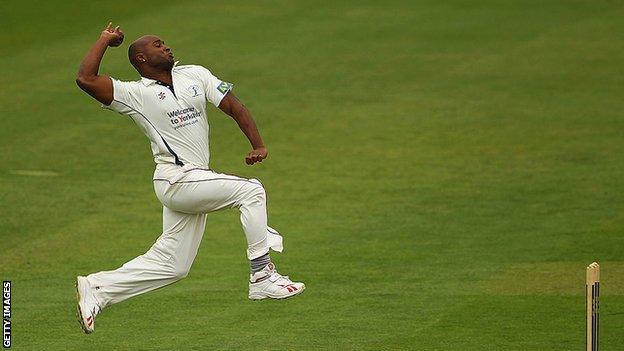The personal conduct policy has been introduced in England and Wales to curb the drinking culture which many players have condoned. The move comes following a string of high-profile scandals, such as Ben Stokes’ arrest on suspicion of causing actual bodily harm after an incident outside a nightclub last year.
Cricket is one of the most alcohol-heavy sports in the world, but it’s impossible to enjoy watching a game with beer glasses and cans on sale. Drinking culture has become increasingly politicized among fans, particularly young men who use cricket as an excuse to drink away their problems. Tino Best went on record saying that England needed more action taken against alcohol at matches. This sentiment was shared by some others, including new captain Joe Root – though he admitted there are “lots” of other factors involved too
 The importance of education cannot be overstated – Tino Best, a former Yorkshire and Hampshire spinner, believes cricket must address a “drinking culture” that is “hinderning” possibilities for black and Asian players.
The importance of education cannot be overstated – Tino Best, a former Yorkshire and Hampshire spinner, believes cricket must address a “drinking culture” that is “hinderning” possibilities for black and Asian players.
The 40-year-old former West Indian international spent the 2010 season with Yorkshire, where he played with Azeem Rafiq, who recently claimed that English cricket is “institutionally” racist.
Rafiq told how, as a 15-year-old practicing Muslim, he was pushed down by a senior player at his local cricket club and red wine was poured into his mouth during his emotional evidence before the Digital, Culture, Media and Sport select committee.
He stated he didn’t consume alcohol again until “about 2012,” when he felt compelled to “fit in” at Yorkshire University.
“The culture surrounding cricket is drinking,” Best told Sport. That is a significant issue. To be a member of the team, people shouldn’t feel obligated to go into the clubhouse and drink eight or nine beers. Stop pressuring individuals into doing something they don’t want to do.
“You won’t have prospects beyond cricket if you’re not a member of the drinking culture or the guys’ club. That is a barrier that people of color and Asian ethnicity face.”
On Tuesday, England and Wales Cricket Board chief executive Tom Harrison told MPs that the governing body will look at the dressing room culture in cricket and that racism had no place there.
‘It was incredible to hear what those men were saying in 2010’, says the author.
 Yorkshire was the first foreign team for which Best played in 2010.
Yorkshire was the first foreign team for which Best played in 2010.
Rafiq was testifying before MPs after a report revealed he had been the subject of “racial abuse and bullying,” but Yorkshire declared no one would be punished.
Best claims he was taken aback when he learned he was included in the report. He’d sent an email to Rafiq’s lawyer concerning the treatment of players of Pakistani ancestry, which the panel referred to, but neither the panel nor the investigative team had attempted to contact Best for an interview or to get more information.
“During my time at Yorkshire, I constantly saw Adil Rashid, Ajmal Shahzad, and Rafiq together,” he remarked.
“Because I am also a person of color, I would always be with them. I’d constantly hear them whining about what they went through at the youth academy; in fact, they’d grumble about it every day. ‘Wow,’ I’d exclaim.”
Rafiq has talked openly against the usage of non-white players’ nicknames, such as ‘Kevin’ and ‘Steve.’
Best said that he did not hear this while at Yorkshire.
“I didn’t hear anybody say anything explicitly, but when I was eating dinner with the men at Nando’s, they would tell me about tales and things that had happened to them, and it was upsetting, so I wouldn’t repeat them.”
“That was a wake-up call for me. Hearing what the men were saying back in 2010 was incredible. And there was no place for them to really open themselves because they would have lost their contracts and most likely been booted out of the club. Guys were terrified of it.”
Best on the Moxon incident
 Best called his stay at Yorkshire “amazing” and “fantastic,” and claimed the fans and town welcomed him with open arms. But there was one occasion that he remembered.
Best called his stay at Yorkshire “amazing” and “fantastic,” and claimed the fans and town welcomed him with open arms. But there was one occasion that he remembered.
Last year, he claims he approached Yorkshire director of cricket Martyn Moxon about a remark he made to Best after a game, saying, “I’ll put you on the next aircraft to Barbados, I’ll send you home.”
Rafiq’s witness testimony, which was issued in full by DCMS following Tuesday’s session, also highlighted the alleged confrontation between Best and Moxon.
Best said he didn’t think the remark was racist until he saw people in league cricket scream “go back home, go back to your country.”
Moxon remembered the match and discussion in issue, according to Best, but provided a “half-hearted explanation.”
“Oh, don’t try to pull me into this Black Lives Matter stuff,” Best explained. “I responded, ‘I’m not trying to drag you into anything; I just wanted to know whether you would have said that to any other player and what you were getting at?’ He also said that he would have said the same thing to any player.
“I simply responded, ‘OK, okay, if you don’t see where you went wrong, it’s pointless for you and me to talk, have a nice day.’ I was done with it, but as I watched Rafiq open up the bag of worms of what was going on, I realized that this was the norm. For those guys, this was standard behavior at the club.’
Moxon, who is now unable to play due to a stress-related ailment, has been contacted by the club for comment.
‘It’s critical that we don’t waste this opportunity,’ Azeem Rafiq tells sports writer Dan Roan.
‘Education is the key to progressing.’
Best said that he does not think individuals should be “fired” for their prejudice, and that “education is the way to going ahead.”
“It’s similar to going to rehab. How can you recover from alcoholism? You must get treatment at a rehabilitation facility “he said
Anyone involved in the racism controversy in cricket, he argued, should have to go through many months of “educational rehabilitation” before returning to work.
He proposed that they “unlearn that sort of behavior” over the course of six months to a year of instruction.

